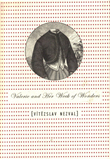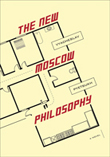An interview with Prague’s publisher of essential Eastern and Central European writing

Prague’s Twisted Spoon Press produce some of the most beautiful books currently in print. Founded in 1992, by Howard Sidenberg, Kevin Blahut and Lukas Tomin, the publishing house has translated a string of classic and contemporary Central and Eastern European titles. Beginning with Lukas Tomin’s novel The Doll and a volume of stories by Kafka, Twisted Spoon has focused on key works from the 20th century, including Nezval’s surrealist Valerie and Her Week of Wonders, alongside new writing, such as my personal favourite Polish author Andrzej Stasiuk’s Tales of Galicia. The books always have an excellent translation and are handsomely designed. Twisted Spoon’s editor Jed answered a few questions.
TSP seems to run with a small team. Can you briefly introduce the main people? I’m particularly interested in what Eva does as researcher.
Eva spends a lot of time in the libraries. Her breadth of knowledge is impressive, imposing even. Without her, we don’t exist. The others, drone bees with phoney titles. Not worth wasting time on.
Translations of contemporary literature are often quite awkward, whereas TSP translations are usually very poetic. How do you pick translators?
Thank you. Sometimes we pick the translator and sometimes the translator picks us, and sometimes the translator has been collaborating with the author for a while, as is the case with Antonia Lloyd-Jones and Olga Tokarczuk. We’ve been gradually building a collaborative framework whereby we work with particular translators and develop projects together, such as Soren Gauger from Polish or Marek Tomin from Czech. So we don’t really use standard publishing operating procedures, which would be to solicit samples from various translators and then choose which we think works best. We want to do this together, and this helps tremendously when it comes to the editing phase. A congenial working relationship is a big plus when discussing alternative approaches to a text.
The books are very beautiful and tactile objects. What is the idea behind such care over details?
The general idea is that it’s not that interesting for us otherwise. It might make business sense to go to a POD model, or produce generic paperbacks, but we wouldn’t have as much fun, or frustration in seeing all the things we could’ve done a bit better once the actual book is in our hands.
You now have Kindle editions. How do you feel about the digital format?
It will certainly help to keep books available when a reprint is not feasible. And it gives readers a choice, either the physical book, which as you’ve noted we focus on making attractive, or the digital edition. I see it as an opportunity. The problem we’re having with it, being based in Europe, is not the format but the retail platforms that have sprung up abroad (particularly in the US). Amazon is the most accessible to get work up on, the others have some ‘barriers’ in place. But I think the kinks will be worked out in the end. So that means we will probably make epubs available, but are still figuring out how we’d like to do it. Going through our distributor probably makes the most sense. Also, we might make some older out of print titles available either for free or at a very low price. Digital formats allow for that as well.
What was the impulse behind starting TSP? It was soon after the Velvet Revolution, was there a desire to assert a different version of central Europe through the books? Has TSP’s mission changed over the years?
The impulse, in all honesty, was nothing more than: why not? Lukas Tomin had this novel, The Doll, which was the first book we published. He and I were discussing in 1991 some sort of literary magazine idea we had, and he said, “Why not do books? I have a manuscript that’s generated some interest at a couple UK publishing houses”. So he gave it to me, I read it, liked it a lot, and thought, “Sure, why not?” A bit impulsive I guess, especially since I had no idea how to do anything connected with publishing.
Can you see any reasons why such a project came out of Prague, rather than, say, Warsaw or Budapest?
As for us, we live in Prague, not the other cities. It wasn’t a case of surveying the landscape and deciding which city would be best. I was in Budapest in early spring ’91, and the city already had a vibrant expat community, or so it seemed. Maybe no one was interested in actually publishing though. I don’t know.
What interesting new developments do you see in the Czech literary scene at the moment?
There is nothing new anywhere. There are some very good writers here, but I wouldn’t say it’s because they’re doing anything all that innovative or new.
There is a common complaint that too little writing gets translated into English (the three per cent as the website puts it). Would you say that TSP has invented a new model of translation? More proactive and ‘export led’?
All figures are relative. But it does make one pause at the level of blather this particular number has generated, and I find that far more intriguing than the actual figure itself, because it indicates where people’s minds are at. These sorts of arguments are useful for grant applications, and I’m all for that if it helps you to get the funding to keep going. But percentages, whether accurate or not, are irrelevant. I just think there is some interesting work in this part of Europe, and interesting enough to devote one’s time to translating and publishing it. I don’t know that we’ve “invented” anything, though I appreciate the compliment. Being proactive is a choice, since we are interested in particular ideas, or modes of expression, and would like to promote these. And we prefer to work with translators who are expats in the region. The export part is de facto necessity: we’re here and the distributors are there. Though within the EU, sending books to the UK distributor is only somewhat of an export situation.
What plans do you have for the future of TSP? Will you be having a birthday party next year?
Our plans are to survive and keep publishing, as any independent press would tell you. We have a series tentatively titled ‘image to word’ that we’ve been lining up work for. It’s based on text accompanying the image, rather than vice versa as with illustration. We very well might have a birthday party next November. I’d like to reprint The Doll in a limited edition for the occasion, and maybe a couple of other older titles. I suppose we should do a little fund-raising. On the other hand, every time you have one of these events all sorts of people you’d rather not see tend to show up, especially if there’s free booze.
Forthcoming titles by Twisted Spoon Press:
 The New Moscow Philosophy – Vyacheslav Pyetsukh (June 2011): The first English translation (by Krystyna A. Steiger) of Pyetsukh’s 1989 postmodern reworking of Crime and Punishment is set in a communal apartment during the late Soviet era.
The New Moscow Philosophy – Vyacheslav Pyetsukh (June 2011): The first English translation (by Krystyna A. Steiger) of Pyetsukh’s 1989 postmodern reworking of Crime and Punishment is set in a communal apartment during the late Soviet era.
Glorious Nemesis – Ladislav Klíma (October 2011): Klíma was a Czech novelist and philosopher from the early 20th century whose thinking was influenced by Schopenhauer and Nietzsche. Glorious Nemesis is an eccentric novella representing the unique violence of his thinking.
Dreamverse – Jindřich Štyrský (forthcoming 2011): Artistst and poet, Štyrský was the founder of Czechoslovakian surrealism. His collages are startling and superb, often a mix of the erotic and paranoid. Dreamverse is a dream journal covering the full range of Štyrský’s style.
I Burn Paris – Bruno Jasieński (forthcoming 2011): Poet and leader of the Polish futurist movement, Jasieński was considered the enfant terrible of Polish literature. I Burn Paris (1929) got the author deported from France and was a futurist novel describing the decay underlying capitalist society.
Further Reading:
Twisted Spoon official site
Profile at West Virginia Press Online
Interview with Howard Sidenberg at Publishing Perspectives
